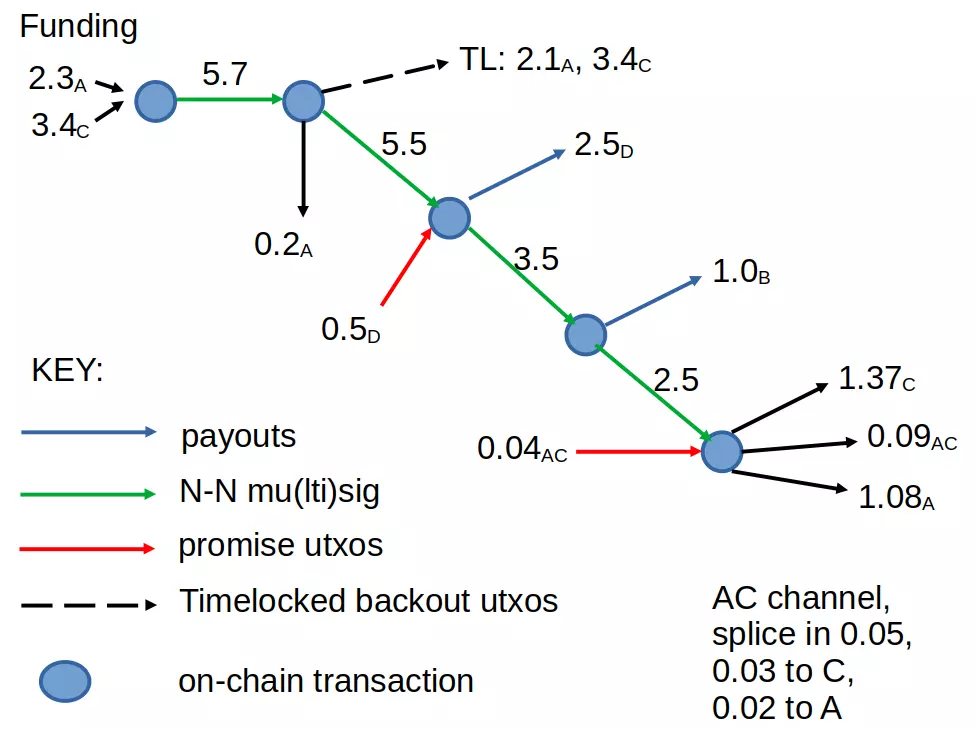waxwing on Nostr: It has definitely been discussed before. Before considering the mempool specifically, ...
It has definitely been discussed before. Before considering the mempool specifically, just the more fundamental idea of using the blockchain itself as a bulletin board, it solves an otherwise incredibly difficult problem of a neutral/uncensorable publishing platform, which is identified in e.g. the Coinshuffle paper as being a/the essential requirement to make a coinjoin coordination protocol that is guaranteed to succeed.
A certain well known bitcoiner proposed roughly what you're saying in 2018, with specifically miners being coordinators. While I and many others didn't like the idea of miners being in charge of such a thing, the obvious issue is that, ultimately, the miners already are and must always be, the coordinators. Whereas with the general censorship resistance property - that if we are concerned about a set of miners blocking a certain transaction, we can always just wait long enough for an independent miner to do the right thing - here, if we are talking about real-time coordination, then miners are just as bad, if not worse, than other types of coordinator in terms of wielding power.
Whether it's mempool or onchain already, in both cases, there is a big issue I think with cost; if negotiation means publishing txs, the cost per message/advertisement is in general really non-trivial. maybe there's ways to get clever about that. By drawing back from using onchain messages to mempool messages, you do make speed possible, but you give up the finality (messages can be equivocated i guess) and it's costly.
Sorry I'm being really vague but then again the proposal is also not concrete :)
A certain well known bitcoiner proposed roughly what you're saying in 2018, with specifically miners being coordinators. While I and many others didn't like the idea of miners being in charge of such a thing, the obvious issue is that, ultimately, the miners already are and must always be, the coordinators. Whereas with the general censorship resistance property - that if we are concerned about a set of miners blocking a certain transaction, we can always just wait long enough for an independent miner to do the right thing - here, if we are talking about real-time coordination, then miners are just as bad, if not worse, than other types of coordinator in terms of wielding power.
Whether it's mempool or onchain already, in both cases, there is a big issue I think with cost; if negotiation means publishing txs, the cost per message/advertisement is in general really non-trivial. maybe there's ways to get clever about that. By drawing back from using onchain messages to mempool messages, you do make speed possible, but you give up the finality (messages can be equivocated i guess) and it's costly.
Sorry I'm being really vague but then again the proposal is also not concrete :)
